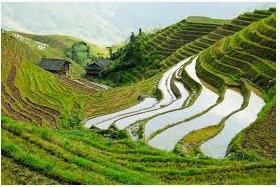CTET & State TET Exam > CTET & State TET Tests > Chapter Test: Making a Living - 1 - CTET & State TET MCQ
Chapter Test: Making a Living - 1 - CTET & State TET MCQ
Test Description
10 Questions MCQ Test - Chapter Test: Making a Living - 1
Chapter Test: Making a Living - 1 for CTET & State TET 2025 is part of CTET & State TET preparation. The Chapter Test: Making a Living - 1 questions and answers have been prepared
according to the CTET & State TET exam syllabus.The Chapter Test: Making a Living - 1 MCQs are made for CTET & State TET 2025 Exam.
Find important definitions, questions, notes, meanings, examples, exercises, MCQs and online tests for Chapter Test: Making a Living - 1 below.
Solutions of Chapter Test: Making a Living - 1 questions in English are available as part of our course for CTET & State TET & Chapter Test: Making a Living - 1 solutions in
Hindi for CTET & State TET course.
Download more important topics, notes, lectures and mock test series for CTET & State TET Exam by signing up for free. Attempt Chapter Test: Making a Living - 1 | 10 questions in 10 minutes | Mock test for CTET & State TET preparation | Free important questions MCQ to study for CTET & State TET Exam | Download free PDF with solutions
Chapter Test: Making a Living - 1 - Question 1
Which of the following is the non farming activity
Detailed Solution for Chapter Test: Making a Living - 1 - Question 1
Chapter Test: Making a Living - 1 - Question 2
Economic and social planning comes under which of the following?
Detailed Solution for Chapter Test: Making a Living - 1 - Question 2
Detailed Solution for Chapter Test: Making a Living - 1 - Question 3
Detailed Solution for Chapter Test: Making a Living - 1 - Question 4
Detailed Solution for Chapter Test: Making a Living - 1 - Question 5
Chapter Test: Making a Living - 1 - Question 6
People of Chizami district belong to which community
Detailed Solution for Chapter Test: Making a Living - 1 - Question 6
Chapter Test: Making a Living - 1 - Question 7
Which of the following is false regarding Ramalingam
Detailed Solution for Chapter Test: Making a Living - 1 - Question 7
Chapter Test: Making a Living - 1 - Question 8
Which of the following is not the reason for crop failure
Detailed Solution for Chapter Test: Making a Living - 1 - Question 8
Chapter Test: Making a Living - 1 - Question 9
Why Sekar no go to the town market to get better price for his paddy
Detailed Solution for Chapter Test: Making a Living - 1 - Question 9
Detailed Solution for Chapter Test: Making a Living - 1 - Question 10
Information about Chapter Test: Making a Living - 1 Page
In this test you can find the Exam questions for Chapter Test: Making a Living - 1 solved & explained in the simplest way possible.
Besides giving Questions and answers for Chapter Test: Making a Living - 1, EduRev gives you an ample number of Online tests for practice
Download as PDF




















